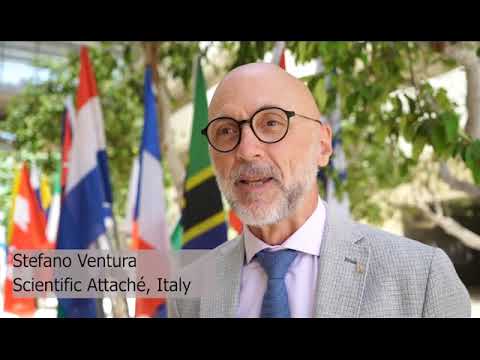High-Paying Cardiothoracic Surgeon Career: Job Description & Salary

Cardiothoracic Surgeon Job Description Template
Cardiothoracic Surgeon Job Description A cardiothoracic surgeon is a highly skilled medical professional who specializes in performing surgical procedures on the heart, lungs, and other organs within the chest cavity. These surgeons play a critical role in treating various cardiovascular and thoracic conditions, including heart disease, lung cancer, and congenital heart defects. One of the primary responsibilities of a cardiothoracic surgeon is to assess patients’ conditions and determine the most appropriate treatment plan. This involves conducting thorough examinations, reviewing medical histories, and ordering diagnostic tests such as imaging scans and laboratory tests. Based on the findings, the surgeon will develop a surgical strategy tailored to each patient’s unique needs. The actual surgical procedures performed by cardiothoracic surgeons can range from minimally invasive techniques to complex open-heart surgeries. They may repair or replace damaged heart valves, remove tumors from the lungs, or perform coronary artery bypass grafting to improve blood flow to the heart. These surgeries require extreme precision and meticulous attention to detail. In addition to performing surgeries, cardiothoracic surgeons are also responsible for postoperative care and follow-up. They monitor patients’ progress, prescribe medications, and provide instructions for recovery and rehabilitation. They work closely with other healthcare professionals, including anesthesiologists, cardiologists, and nurses, to ensure comprehensive and coordinated patient care. To become a cardiothoracic surgeon, extensive education and training are required. This typically includes completing a medical degree, followed by a residency program specializing in cardiothoracic surgery. Board certification is also necessary to practice as a cardiothoracic surgeon. In summary, cardiothoracic surgeons are highly skilled medical professionals who perform life-saving surgeries on the heart and lungs. Their expertise and dedication to patient care make them an essential part of the healthcare team in treating various cardiovascular and thoracic conditions.Cardiothoracic Surgeon Responsibilities
Cardiothoracic Surgeon Requirements
How Much Does A Cardiothoracic Surgeon Make?
Cardiothoracic Surgeon Salary
| Experience Level | Salary Range |
|---|---|
| Entry Level | $300,000 – $400,000 |
| Mid-Career | $400,000 – $600,000 |
| Experienced | $600,000 – $800,000 |
| Senior | Above $800,000 |
A cardiothoracic surgeon is a highly specialized medical professional who performs surgical procedures on the heart, lungs, and other thoracic organs. The salary of a cardiothoracic surgeon varies depending on the level of experience. Entry-level cardiothoracic surgeons can expect to earn between $300,000 and $400,000 annually. As they gain more experience, their salary can increase to the range of $400,000 to $600,000 for mid-career surgeons. Experienced cardiothoracic surgeons can earn between $600,000 and $800,000, while senior surgeons with extensive expertise can earn above $800,000 per year. The high level of skill and expertise required in this field, as well as the critical nature of the surgeries performed, contribute to the higher salary range for cardiothoracic surgeons.
Cardiothoracic Surgeon Salaries by Country
Top Paying Countries for Cardiothoracic Surgeons
| Country | Average Annual Salary (USD) |
|---|---|
| United States | $$450,000 |
| Switzerland | $$400,000 |
| Australia | $$350,000 |
| Germany | $$320,000 |
| Canada | $$310,000 |
| United Kingdom | $$300,000 |
Cardiothoracic surgeons are among the highest-paid medical professionals in the world. This table showcases the top-paying countries for cardiothoracic surgeons based on their average annual salaries. The United States leads the list with an average salary of $450,000, followed by Switzerland with $400,000. Australia, Germany, Canada, and the United Kingdom also offer attractive compensation packages for these highly skilled surgeons.
A video on the topic Cardiothoracic Surgeon
Video Source : Med School InsidersInterview Questions for Cardiothoracic Surgeon
1. What inspired you to become a cardiothoracic surgeon?
I have always been fascinated by the complexity of the human heart and the challenges associated with treating cardiovascular diseases. Witnessing the impact of cardiothoracic surgery on patients’ lives inspired me to pursue this field.
2. What does a typical day look like for a cardiothoracic surgeon?
A typical day involves reviewing patient charts, performing surgeries, conducting rounds to check on post-operative patients, attending meetings with other healthcare professionals, and staying updated on the latest advancements in the field.
3. How do you approach a complex cardiothoracic surgery case?
I approach complex cases by thoroughly reviewing the patient’s medical history, conducting diagnostic tests, consulting with other specialists, and developing a comprehensive surgical plan. Collaboration and careful preparation are crucial in ensuring successful outcomes.
4. What are some common challenges faced by cardiothoracic surgeons?
Some common challenges include managing high-risk patients, dealing with unexpected complications during surgery, and making critical decisions in time-sensitive situations. Additionally, maintaining a healthy work-life balance can also be challenging due to the demanding nature of the profession.
5. How do you stay updated on the latest advancements in cardiothoracic surgery?
I attend conferences, workshops, and symposiums related to cardiothoracic surgery. I also actively participate in research projects and collaborate with other surgeons to stay informed about the latest advancements in techniques, technologies, and treatment options.
6. What qualities do you believe are important for a successful cardiothoracic surgeon?
Some important qualities include excellent technical skills, attention to detail, the ability to make quick and accurate decisions, good communication skills, empathy towards patients, and the willingness to continuously learn and adapt to new advancements in the field.
7. How do you handle the emotional aspects of being a cardiothoracic surgeon?
Being a cardiothoracic surgeon can be emotionally challenging, especially when dealing with life-threatening situations and patient deaths. I rely on support from my colleagues, take time for self-care, and constantly remind myself of the positive impact I can make on patients’ lives.
8. Can you describe a particularly memorable or rewarding moment in your career?
A particularly memorable moment was when I successfully performed a heart transplant on a young patient who had been waiting for a suitable donor for a long time. Witnessing the patient’s recovery and the joy it brought to their family was incredibly rewarding and reaffirmed my passion for this field.
9. What advice do you have for aspiring cardiothoracic surgeons?
My advice would be to pursue a strong academic foundation, gain hands-on experience through internships or fellowships, seek mentorship from experienced surgeons, and stay committed to continuous learning. Also, remember to prioritize self-care and maintain a healthy work-life balance.
10. How do you see the future of cardiothoracic surgery evolving?
I believe the future of cardiothoracic surgery will see advancements in minimally invasive techniques, robotic-assisted surgeries, and personalized medicine. Additionally, the field will continue to benefit from ongoing research in regenerative medicine, improving patient outcomes and reducing recovery times.






